 Muslim community leaders of Kerala know only too well about this rapid radicalisation among the youth, but many of them are in denial. – Tufail Ahmad
Muslim community leaders of Kerala know only too well about this rapid radicalisation among the youth, but many of them are in denial. – Tufail Ahmad
The hammer-and-sickle is giving way to the crescent of Islamism in Kerala. This is evident in the headlines, and sometimes between the lines of reports that portend grave dangers for the state, perhaps even the whole country. On 13 September, news surfaced that a baby girl was born to Rifaila, who with her husband Ijaz and son and some two dozen other Keralites had left home to join the ISIS more than a year ago. The baby was born in war-torn Syria—a child of jihad, apparently—far from her parents’ house in Kasargode, north Malabar.
On the same day, it emerged that several of these Malayalees were indoctrinated in jihad by a UK-based couple. Though details are yet to be disclosed, it was Yasmin Ahmad who spilled the beans to Indian intelligence agencies on being questioned following her detention at Delhi’s Indira Gandhi International Airport. Ahmad is the second wife of Abdul Rashid, who had worked at Peace International School at  Malappuram, run by radical televangelist Zakir Naik’s NGO, Islamic Research Foundation. Rashid, along with his first wife and child, is believed to be in Afghanistan.
Malappuram, run by radical televangelist Zakir Naik’s NGO, Islamic Research Foundation. Rashid, along with his first wife and child, is believed to be in Afghanistan.
Muslim community leaders of Kerala know only too well about this rapid radicalisation among the youth, but many of them are in denial.
On 12 September, Ismail Kangarappady, a prayer leader, told a gathering in Kochi, “One cannot even regard the ISIS as an Islamic terrorist outfit. The ideals they propagate have nothing to do with real Islam.” Sharif Melethil, an imam, told worshippers, “Seeking a mysterious paradise is not jihad.”
In Islam, there are two spiritual quests for paradise: one motivates the faithful to live for life after death, while the other often leads Muslims to migrate from non-Muslim lands to Dar-ul-Islam (‘House of Peace’), seen as countries under Islamic rule. During the Hijrat Movement, an offshoot of the 1920s’ Khilafat Movement, Indian Islamic scholars like Maulana Abdul Kalam Azad, Maulana Abdul Bari, Maulana Muhammad Ali and Maulana Abdul Majeed Sindhi issued a fatwa (decree) declaring that migration to Dar-ul-Islam from Dar-ul-Harb (‘House of War’) was desirable. As a result, a number of Indian Muslims migrated to Afghanistan, though they found themselves unwelcome there. In recent years, some Muslims of Kerala have been going to Yemen, and also to Sri Lanka, where operatives trained in Yemen have established camps.
“I don’t believe the missing youths from Kerala went to join the Islamic State,” Mujib Rahman, a teacher based in Kozhikode, had said in an interview back in July, when it wasn’t clear where the youths had gone. His hunch was that they had gone to Yemen, rather than Syria to fight alongside ISIS.
Rahman is a former president of the Ithihadu Shubbanil Mujahideen, the student wing of Kerala Nadvathul Mujahideen (KNM), a Salafist outfit that describes itself as an islaahi (reformist) group with roots in  Egyptian and Saudi religious movements of the late-19th and 20th centuries. Bear in mind, however, that Islamic groups such as the Tablighi Jamaat, Jamaat-e-Islami, ISIS, Taliban and Al-Qaeda all call themselves “reformist” and consider their faith “purer” than that of others.
Egyptian and Saudi religious movements of the late-19th and 20th centuries. Bear in mind, however, that Islamic groups such as the Tablighi Jamaat, Jamaat-e-Islami, ISIS, Taliban and Al-Qaeda all call themselves “reformist” and consider their faith “purer” than that of others.
The KNM has split and reunited many times under the influence of Saudi Arabia-educated members who tend to return with a doctrinal version of Islam that’s at odds with what the group has traditionally preached. While the so-called moderate faction of the KNM has focused on such reforms (in their view) as allowing women into mosques and having the Friday khutba (sermon) in Malayalam, radicalised Saudi returnees have been propagating a kind of Islamic globalism that (among other measures) insists on Arabic for the khutba.
Krishnendhu R. Nath is an NRI based in Malaysia. On 14 June, the eighth day of Ramazan, she was travelling through Kerala’s Muslim-dominated Malappuram district. She felt sick and needed some lime soda. Her husband’s friend went looking from shop to shop along the highway, but was told that since it was the Muslim month of fasting, no refreshment could be sold. Startled by this, she herself went over to confront a shopkeeper. “What is the problem with selling nimbu pani during fasting season? What will travellers like us who have no fasting do?’” According to her Facebook post, the answer she got was: “It is not that we don’t like to. But our shops will be destroyed if we do that.” She got the same response at another shop. “Is this Saudi Arabia?” she exclaimed.
Non-Muslims are aghast at this aggressive display of religious identity in places that have a large Islamic presence. “The Hindu community in Malappuram is now far subdued, far outnumbered by Muslims,” says Vivek Vibha, an architect based in Kochi, observing that assertions of Muslim identity often go with indoctrination and intolerance. Hardliners then tend to gain an upper hand, many of whom manage to foist their thoughts on others and insist on old-fashioned codes of conduct. Ansiba Hassan, a Muslim actor from Kerala, faced abuse from Islamist trolls after she posed for a photograph with Buddhist monks. She was forced to remove the photograph from her Facebook page. Another female actor, Nazriya Nazim, was targeted for not wearing a hijab offscreen. Asif Ali, an actor, was abused for posting a picture from a UK cricket stadium with the caption, ‘The Mecca of Cricket—Lords.’
Professor Kausik Gangopadhyay, who teaches at Indian Institute of Management, Kozhikode, notes a suddenness to the new religiosity of Muslims in Kerala. “When I moved to Kozhikode in June 2009, this was a far more open city. No shops will close in Ramazan, except for about half-an-hour at iftaar (sundown break of fast),” he says. “Now even the spelling of Ramazan has changed to ‘Ramadan’, the Arabic version. Saudi Arabia has more influence here. It’s a new influence.” Adds Vibha, “The new rise in Islamism in Kerala is due to money from the Middle East.”
The police confirm large inflows of funds from West Asia into Kerala, some of it illegal. Gold, for example, is smuggled in. Notes M. G. S. Narayanan, a renowned historian, “Money is being pumped in to Kerala. Elected governments always knew it, but did nothing about it.” Sajad Ibrahim, an associate professor of Political Science at University of Kerala, explains the phenomenon. “Don’t be under the impression that only Muslims are bringing money from Gulf countries. Christians from Kerala are working as professionals in the Gulf and get lots of money, followed by Hindus, but Muslims working there are in large numbers,” he says. “All NGOs of Muslims in northern Kerala are rich and powerful. Charitable organisations have links with political parties and exercise influence and power over them,” he adds. The situation in Kerala is unstable, he says, as the Popular Front of India (PFI) have been taking control of mosques and the acts of some Muslims under its sway have caused disharmony between Hindus and Muslims.
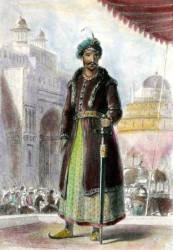 On 8 July, Muslims arriving for namaaz at Nadakkar, in the heart of Kozhikode, made a blatant show of defying civic rules by parking their bikes in the middle of the road in front of a police station opposite the mosque. The police say they were helpless. Some of the tensions date back centuries. The first recorded conflicts involving Muslims in Kerala go back to the time of Vasco da Gama, whose landing near Kozhikode in 1498 CE some believe brought elements of Europe’s Islam-versus-Christianity dynamics to India. However, it was attacks on Malabar in 1771 and 1789 by Hyder Ali and his son Tipu Sultan that were turning points for Islamist fervour in the region.“Hyder Ali plundered Hindu temples because there was gold there,” says Narayanan, “This was the beginning of the divide between Hindus and Muslims. And Tipu Sultan’s attacks later worsened this divide, as he gave lands seized from Hindus to new lower-caste converts to Islam.”
On 8 July, Muslims arriving for namaaz at Nadakkar, in the heart of Kozhikode, made a blatant show of defying civic rules by parking their bikes in the middle of the road in front of a police station opposite the mosque. The police say they were helpless. Some of the tensions date back centuries. The first recorded conflicts involving Muslims in Kerala go back to the time of Vasco da Gama, whose landing near Kozhikode in 1498 CE some believe brought elements of Europe’s Islam-versus-Christianity dynamics to India. However, it was attacks on Malabar in 1771 and 1789 by Hyder Ali and his son Tipu Sultan that were turning points for Islamist fervour in the region.“Hyder Ali plundered Hindu temples because there was gold there,” says Narayanan, “This was the beginning of the divide between Hindus and Muslims. And Tipu Sultan’s attacks later worsened this divide, as he gave lands seized from Hindus to new lower-caste converts to Islam.”
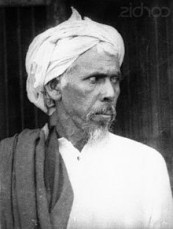 About a century and a half later, the 1921 Malabar Rebellion of Muslims against the British and Hindus marked Kerala’s lowest point in inter-community relations. Some Kerala historians and Congress politicians of the time have presented it as an agrarian conflict, but the uprising had a religious dimension, one factor being the British efforts to rehabilitate Hindus displaced from their lands in Malabar, which provoked the wrath of Moppila Muslims. A large number of Kerala’s Muslims also supported the Khilafat Movement at the time, points out Narayanan.
About a century and a half later, the 1921 Malabar Rebellion of Muslims against the British and Hindus marked Kerala’s lowest point in inter-community relations. Some Kerala historians and Congress politicians of the time have presented it as an agrarian conflict, but the uprising had a religious dimension, one factor being the British efforts to rehabilitate Hindus displaced from their lands in Malabar, which provoked the wrath of Moppila Muslims. A large number of Kerala’s Muslims also supported the Khilafat Movement at the time, points out Narayanan.
In 1992, the Ayodhya issue played a critical role in the further radicalisation of Muslims in a state where they have been financially, socially and even politically better off than those in other parts of India.
As a party, the Indian Union Muslim League (IUML) wielded considerable clout in Kerala’s previous Congress-led coalition government. Abdul Rabb, an IUML minister, even took the liberty of parading his religious identity and power by renaming Ganga, the bungalow allotted to him, as Grace. The IUML flaunts a secular outlook, but various Islamic organisations thrive under its aegis. Last Ramazan, state-provided mid-day meals for students were stopped in the schools of Kozhikode and Malappuram after some Islamic clerics issued a fatwa against them, but IUML leaders could not oppose them, says Kochi-based lawyer Jaysankar.
Focus in Kozhikode is one of several shopping malls in the state that has prayer rooms for Muslims—separate ones for men and women—but none for Hindus and Christians. This encroachment of Kerala’s secular spaces causes unease among Hindus. A. Vinod, a school teacher in Malappuram, notes that earlier homes had names in Malayalam, but Muslim houses now have them in Arabic. Muslims offering prayers in government offices is also common. “Some places should be secular spaces,” he says, adding that there is no such overt religiosity in areas of Christian influence like Tiruchur and Kottayam. In Western countries, airports have multi-faith prayer rooms but not special ones for Muslims.
In Kerala, the expressions “Sunni Muslim” and “Mujahid Muslim” are heard often. Both belong to the Sunni sect of Islam but “Sunni” here refers to a moderate Muslim, perhaps a peasant, with no hostility to non-Muslims and their lifestyles and religious practices. A “Mujahid”, however, means an unarmed radicalised Muslim who advocates piety, detests local rituals and ways of life, and actively opposes them when possible. At Narikunni, 20 km from Kozhikode, Naveen P. K. had opened a Patanjali ayurvedic shop, but posters for the brand’s products were removed by neo-Mujahid Muslims. Fewer Muslims now come to his shop, he says, adding that even Mujahids secretly send their servants to pick up ayurvedic medicines.
Mujahid Muslims represent what would be known internationally as the Wahhabi-Salafist version of Islam, which Jaysankar says has existed at the level of ideas in Kerala since the 1920s. Mujahids preach a puritan version of Islam and oppose Sufi practices at shrines. These are views held increasingly by the KNM as well, and it is from this corpus of ideas that grew the National Development Front (NDF), a radical Islamist group now known as PFI, which has roots in the Students Islamic Movement of India (SIMI), a banned militant group that broke away from the Jamaat-e-Islami.
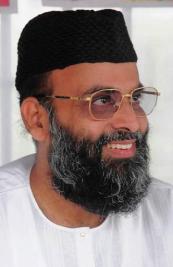 Abdul Nasser Madani is a leader whose name figures in the radicalisation of Muslims. He spent jail terms in the cases of the Coimbatore blasts of 1998 and the Bangalore blasts of 2008. P. Unnikrishnan, a former Vigilance Department officer, says that after the demolition of the Babri mosque on 6 December 1992, Muslim zeal was stoked by fiery speeches made by Madani. “In 1999, we arrested some youths for radical activities who confessed that they were attending evening classes led by disciples of Madani,” he says, adding that it was through him that the Tamil Nadu-based group Al Ummah had links with the NDF, which was once the People’s Democratic Party (PDP) which he had launched. Unnikrishnan argues that young men and women joining ISIS is an outcome of Islamist fervour in Kerala. He had arrested Ayub Ilyas Sabir for radical activities, he says, but he was granted bail and escaped to Pakistan. At least four infiltrators killed trying to enter Kashmir from across the LoC have turned out to be of Keralite origin. N. P. Balakrishnan, a former police officer, says that there were many arson attacks in the 1990s on cinemas in Malappuram that were the result of incendiary speeches delivered by Madani against the RSS. Over the years, the PDP was transformed into the NDF, and after assimilating other outfits, into the PFI as it is today—the spearhead of radical activism in Kerala and beyond.
Abdul Nasser Madani is a leader whose name figures in the radicalisation of Muslims. He spent jail terms in the cases of the Coimbatore blasts of 1998 and the Bangalore blasts of 2008. P. Unnikrishnan, a former Vigilance Department officer, says that after the demolition of the Babri mosque on 6 December 1992, Muslim zeal was stoked by fiery speeches made by Madani. “In 1999, we arrested some youths for radical activities who confessed that they were attending evening classes led by disciples of Madani,” he says, adding that it was through him that the Tamil Nadu-based group Al Ummah had links with the NDF, which was once the People’s Democratic Party (PDP) which he had launched. Unnikrishnan argues that young men and women joining ISIS is an outcome of Islamist fervour in Kerala. He had arrested Ayub Ilyas Sabir for radical activities, he says, but he was granted bail and escaped to Pakistan. At least four infiltrators killed trying to enter Kashmir from across the LoC have turned out to be of Keralite origin. N. P. Balakrishnan, a former police officer, says that there were many arson attacks in the 1990s on cinemas in Malappuram that were the result of incendiary speeches delivered by Madani against the RSS. Over the years, the PDP was transformed into the NDF, and after assimilating other outfits, into the PFI as it is today—the spearhead of radical activism in Kerala and beyond.
There are also conflicts among Muslims in Kerala which reflect the sectarian schisms found in Islam elsewhere in India and abroad. Sayeed Muhammad, author of many books on Islam, says that both Sunnis and Mujahids—in the Kerala terminology—do not consider Ahmadis and Shias as Muslim. In Kerala society, while there are tombs of Muslim mystics, there is no Sufi movement to counter the radicalisation of Muslims, but some Sufi practices are found among Sunnis. While there might not be formal organisations representing Barelvis, Wahhabis and Ahl-e-Hadeesis (another extreme group), their radical ideas filter through to Malayalee Muslims in general. In this context, the gruesome murder in 1993 of Islamic cleric P. K. Muhammad Abdul Hasan Baqavi aka Maulvi Chekannur—whose body was never found—is an important marker on the state’s timeline of Islamist radicalisation. The maulvi had written a book arguing that everyone, including non-Muslims, could go to heaven by the dint of their good deeds, not faith per se. Salim Haji, an uncle of Maulvi Chekannur and president of the Koran Sunnat Society (KSS), which observes his 29 July death anniversary as anti-terrorism day, says that the cleric’s liberal views provoked orthodox groups which felt that he was against the hadiths, the collected sayings of Prophet Muhammad.
An RSS worker based in Thiruvananthapuram, who asks not to be named, rejects the idea that Hindus should worry about Muslim radicalisation. However, he says, “Although there are no cases of open violence,  there is apprehension among Hindus…. This means that Muslims become followers of political Islam, [arguing for] the necessity of establishing an Islamic state. They are no longer nationalistic. They create hate against the pagan culture of Hindus,” says the RSS worker, “Radicalisation weans away Muslim youngsters from local society. They are taught to be part of only Muslim society. This introduces puritanical elements and they declare local festivals ‘unIslamic'”.
there is apprehension among Hindus…. This means that Muslims become followers of political Islam, [arguing for] the necessity of establishing an Islamic state. They are no longer nationalistic. They create hate against the pagan culture of Hindus,” says the RSS worker, “Radicalisation weans away Muslim youngsters from local society. They are taught to be part of only Muslim society. This introduces puritanical elements and they declare local festivals ‘unIslamic'”.
A move to have a sculpture of Tunjethu Ezhuthachan, an eminent figure of Malayalam literature, installed at his birthplace Tirur had to be abandoned because the local municipality opposed it under Muslim pressure. A plan by the Kerala government in 2012 to install a statue of the legendary Muslim actor Prem Nazir, who has a Guinness Book record for acting in over 700 movies, was also opposed by the Kerala Muslim Jamaah Council on religious grounds. On the campus of Cochin University of Science and Technology, the breasts of a plant figurine had to be pruned over similar protests. Even a bust of Mahatma Gandhi could not be put up in the nearby Union Territory of Lakshadweep, which is about three hours from Kochi, due to opposition from Muslims who are in a majority there.
In 2010, when Professor T. J. Joseph’s hand was chopped off—for the alleged blasphemy of Prophet Muhammad in an exam paper he had set—by goons of the PFI, Christian groups and the Left did not stand up in his support. M. G. Radhakrishnan, editor of Asianet News TV, says the Church and the Left were afraid that showing solidarity with Joseph could antagonise Muslims and worsen Christian-Muslim tensions.
The spiralling influence of moolah and the mullah can’t be missed along the Arabian Sea. – Open Magazine, 29 September 2016
» Tufail Ahmad was as Director of South Asian Studies Project at the Middle East Media Research Institute, Washington, D.C. He is now described as a Contributing Editor at Firstpost and Executive Director of the Open Source Institute, New Delhi.
See also
- 25k Wahhabi scholars visited India last year – Vicky Nanjappa
- Saudi funded Rs 1,700 crore for Wahhabi influence in India – Vicky Nanjappa
- Al-Wahhab the mad mullah of Islamic terrorism and his Saudi patrons – Javed Anand
Filed under: india | Tagged: foreign funds, india, ISIS, islam in india, islamic fundamentalism, kerala, muslims, radicalisation, saudi arabia, terrorism, wahhabi islam |


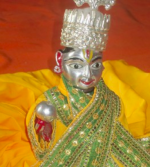


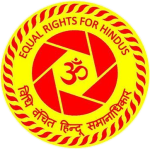


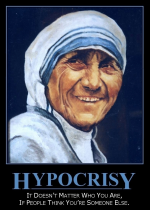
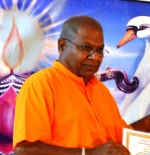
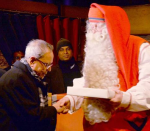
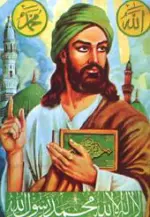
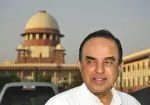
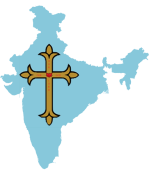

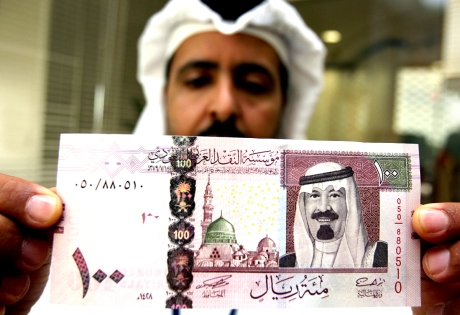
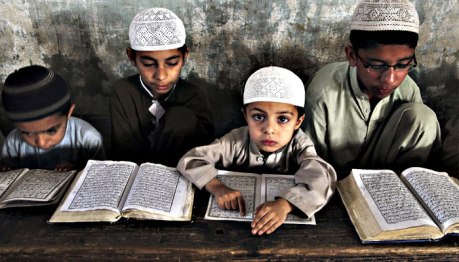
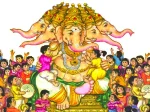

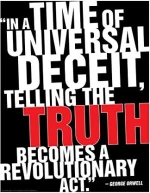

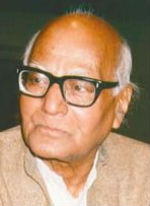

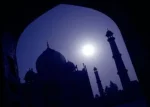
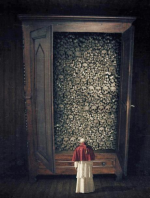


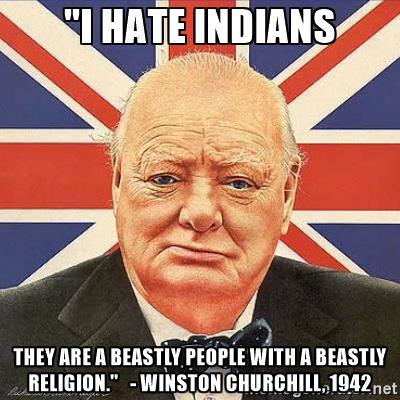
An excellent and well researched article ! Not clear though what the RSS worker meant by saying that HIndus need not worry about Muslim influence and then goes on to list their acts against the Hindus.
LikeLike
What is so different? This has been the behavior of Muslims across the centuries in all countries. When they are the minority they play the victim card and crib about the injustice and demand privileges not afforded to other. When they become the majority then Lo!!! we have Sharia. This is happening in TN in the fishing villages around Rameshwaram etc. Nothing new in all this
LikeLike
Why are visas issued to Wahhabi missionaries in the first place?
Does the Modi Sarkar still follow the visa policy of the Sonia Sarkar?
The RBI is fully aware of the money flowing into India for Muslim and Christian missionary work, so why are no controls placed on this flow of funds?
Or do missionary funds also fall under the rubric of “development”?
LikeLike